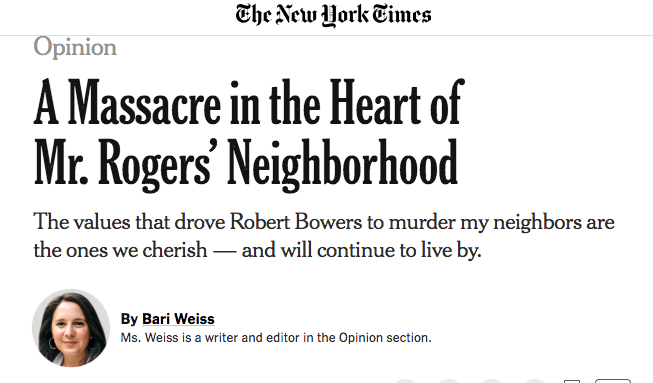Love those letters
Here we go again. More Roman letters and English words on police and security guard uniforms in China (see below for some earlier posts). Here's a doozy:
Read the rest of this entry »
Here we go again. More Roman letters and English words on police and security guard uniforms in China (see below for some earlier posts). Here's a doozy:
Read the rest of this entry »
That's what happened to Paul Midler when confronted with this display on an ATM in China:
Read the rest of this entry »
From Jonathan Weinberg:
An update to "'100% grated parmesan cheese'" (9/5/2017):
In which the court explains that it can blow off the affidavit of Anne Curzan and Ezra Keshet of the University of Michigan that only one interpretation of the phrase “100% grated Parmesan cheese” is plausible in context, and the affidavit of Kyle Johnson of UM-Amherst that the phrase has only one semantically and pragmatically salient interpretation, because “a reasonable consumer -— the touchstone for analysis under the consumer fraud statutes -— does not approach or interpret language in the manner of a linguistics professor.” Aargh.
The new decision has been covered by Rebecca Tushnet at the 43(B) blog ("Post-parmesan: 100% grated parmesan still doesn't have to be 100% grated parmesan, court reiterates", 11/2/2018). (The affidavits — indeed, the names of the experts — don’t appear in the decision or in Rebecca’s writeup, but I pulled them off Pacer.)
Read the rest of this entry »
Emily Jane Fox, "Michael Cohen says Trump repeatedly used racist language before his presidency", Vanity Fair 11/2/2018:
After the first few seasons of The Apprentice, Cohen recalled how he and Trump were discussing the reality show and past season winners. The conversation wended its way back to the show’s first season, which ended in a head-to-head between two contestants, Bill Rancic and Kwame Jackson. “Trump was explaining his back-and-forth about not picking Jackson,” an African-American investment manager who had graduated from Harvard Business School. “He said, ‘There’s no way I can let this black f-g win.’” (Jackson told me that he had heard that the president made such a comment. “My response to President Trump is simple and Wakandan,” he said, referring to the fictional African country where Black Panther hails from. “‘Not today, colonizer!’”)
I puzzled for some time over what word "f-g" might be a disguised form of, and eventually decided it must be "fag" — though Vanity Fair usually publishes taboo words without disguise, including that one. And even the famously prissy New York Times freely publishes "fag". But does anyone have a better guess?
Read the rest of this entry »
I recently got a note from the Philadelphia chapter of the Acoustical Society of America, informing me that the November meeting will held at a location identified as the "Naval Surface Warfare Center Philadelphia Division Machinery Silencing Complex".
I'm pretty sure that this is the longest English complex nominal that I've encountered so far this year, but unfortunately I'll be out of town on the date in question, so I won't be able to see the actual referent.
Pamela Kyle Crossley wonders:
Why, when mi– ma– words for “honey” are so widespread across Eurasia, do English speakers say “honey” instead of some modern form of medhu or meli (except when referring to mead, of course)? Turns out all the Germanic languages left the medhu theme early on, and instead went with variation of *hunaga, which they might originally have cut off from hunigcamb. It sort of suggests that these Germans first encountered honey as imported in combs or frames, not as if they were extracting it from the bees themselves.
Read the rest of this entry »

Magdalen Kelantumama telling the story Murtankala, The Woman Creator, Tiwi language, Australia, Darwin Fringe Festival, July 2017.
2019 is UN International Year of Indigenous Languages. How do we celebrate linguistic diversity and recognise the people who are keeping endangered languages strong? Inspired by the work of Joanna Macy, we have developed a format for storytelling in the original languages. While listeners don't understand the individual words, they get the message:
Speech does not consist of words alone… it consists of utterance – an uttering-forth of one's whole meaning with one's whole being – the understanding of which involves infinitely more than mere word-recognition. With an emotionally-laden utterance the meaning may be fully grasped even when every word is missed. –Oliver Sacks
And the message isn't just a story to be translated and digested, as though language were merely a tool for communication, and linguistic diversity no more than a barrier to be overcome through translation. Audiences experience Language as art, music, spoken soul. The thread of each story linking us back to the ancestors. Language connecting people to country. Each language a treasure for the whole of humankind. A language's emblematic stock of untranslatable words.
Today, speakers of endangered languages are found in urban centres across the world. This presents an opportunity to gather and listen to them, embrace the diversity in our midst, and create new ways and new places for people to belong. A special reward awaits: we all come to belong in our place in a new way.
The good news is that the world is still home to 4,500 vigorous languages. Celebrate with us, and throw a language party!
Permalink Comments off
"A row over mocking non-standard French accents", The Economist 10/25/2018:
It took an outburst that went viral to introduce the French to a new word: glottophobie. […]
The episode emerged last week when Jean-Luc Mélenchon, a far-left firebrand, mocked a reporter with an accent from south-west France. “What does that mean?” he snapped, imitating the journalist’s Occitan twang; “Has anyone got a question phrased in French, and which is more or less comprehensible?” His put-down was as bizarre as it was offensive. The Paris-based Mr Mélenchon is a member of parliament for Marseille, a city known for its Provençal lilt.
Read the rest of this entry »
The subhed of this opinion piece made me do a double take — Bari Weiss, "A Massacre in the Heart of Mr. Rogers’ Neighborhood: The values that drove Robert Bowers to murder my neighbors are the ones we cherish — and will continue to live by", NYT 10/27/2018.
At least, that's how the piece originally ran:

Read the rest of this entry »
I used the expression "take a gander" in something I wrote this morning. Curious about its origin, I found this:
"Where Did the Phrase 'Take a Gander' Come From?" (Today I Found Out [9/22/12])
This is an interesting, informative article, from which I learned much, including the PIE root for "goose", and the fact that geese can fly as high as 30,000 feet!
Read the rest of this entry »
The Mexican City of… WHAT?
😂😂😂😂 pic.twitter.com/CXmQR4wf3H— Laura Martínez © (@miblogestublog) October 25, 2018
… or more generally, "X Occupied Y", where X is something Jewish, and Y is something governmental.
Straight out of the Protocols of the Elders of Zion. Just moments ago, Lou Dobbs guest Chris Farrell (head of Judicial Watch) says Caravan is being funded/directed by the "Soros-occupied State Department". pic.twitter.com/QBSong7uk1
— Josh Marshall (@joshtpm) October 27, 2018
Zionist occupation government, Zionist occupational government, or Zionist-occupied government (abbreviated as ZOG) is an antisemitic conspiracy theory that claims "Jewish agents" secretly control the governments of Western states. Other variants such as "Jewish occupational government" are sometimes used.
The expression is used by white supremacist, far-right, nativist, or antisemitic groups in the United States and Europe, as well as by ultra-nationalists such as Pamyat in Russia, and various far-right groups including the Freemen, Identity Christians, Odinists, and Ku Klux Klan.
So Farrell's phrasing choice ("Soros occupied State Department") is not so much a dog whistle — "A political allusion or comment that only a certain audience are intended to note and recognize the significance of" — as a straight-up fascist salute.
Read the rest of this entry »